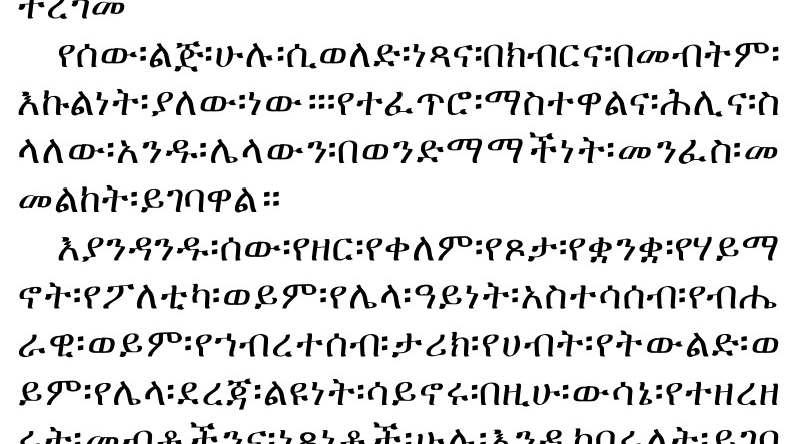What’s new in babel 3.44
2020-05-13
⚠ Important. If you update babel and you need the Portuguese ldf style you must update babel-portuges.
⚠ Important. You may need to rebuild the formats, too.
Optional argument for \foreignlanguage
By default, neither \foreignlanguage nor otherlanguage* switch the date or the captions. If for some reason you needed them, you had to write something like {\selectlanguage{..} ..}, which is not always the most convenient way. Now, you can write, say:
\foreignlanguage[date]{polish}{\today}
In addition, you can switch captions with captions. There are plans to add more options and to extend this mechanism to \selectlanguage.
Extensions in dates in ini files
- The bracketed fields in dates now admit the syntax
[period|counter], where period isd(day),m(month), ory(year), and counter is a counter name as defined in thecounterssection. For an example, see theinifiles for French. \localedate{year}{month}{day}prints the date for the current locale if loaded with\babelprovide.
Changes in ini locale files
Amharic
According to Approaches to line breaking when word separators are used, Ethiopic wraps after any character, except with the separators. Modern practice, however, is to separate words with spaces and not to break words (much like Arabic or Hebrew).
Now with luatex, Amharic by default follows the modern practice, but
the traditional one can be activated just by selecting
hyphenrules=amharic (in other words, the patterns for Amharic are
not set by default to those named amharic in language.dat). Internally,
the mechanism is the same as that for South East Asian scripts, which
means the line breaks can be fine-tuned with \babelpatterns and
\babelposthyphenation.

There is a good deal of alphabetic counters for Ethiopic languages in the CSS Ready-made counter styles, and they have been added: afar, agaw, ari, blin, dizi, gedeo, gumuz, hadiyya, harari, kaffa, kebena, kembata, konso, kunama, meen, oromo, saho, sidama, silti, tigre, wolaita, yemsa.
Other changes
- French. Now the first day of the month is “1er”.
- Portuguese. Month names are now lowercase, following the recent orthographic rules.
Preliminary code for \babelprehyphenation
[Update. See the manual for the final version.]
Note it is tentative, but the current behavior for glyphs should be correct.
It is similar to \babelposthyphenation, but (as its name implies) applied before hyphenation. There are other differences: (1) the first argument is the locale instead the name of hyphenation patterns; (2) in the search patterns = has no special meaning (| is still reserved, but currently unused); (3) in the replacement, discretionaries are not accepted, only remove, {}, and string = ... Also, you must not use ^ or $.
Currently it handles glyphs, not discretionaries or spaces (in particular, it will not catch the hyphen and you can’t insert or remove spaces). Also, you are limited to substitutions as done by lua, although a future implementation may alternatively accept lpeg.
Performance is still somewhat poor.
Example 1: transliteration
Here is an example of what can be done currently. Consider the following definitions (for a trasliterated Russian):
\babelprovide[import=ru]{transrussian}
% Note the order is relevant. First 3-letter groups, then 2-letter ones
% and finally 1-letter ones. Casing is based on the first letter (note
% the trick for ju and ja).
\babelprehyphenation{transrussian}{([Ss])[Cc][Hh]}{
string = {1|Ss|Щщ},
remove,
remove
}
\babelprehyphenation{transrussian}{([ZCSzcs])[Hh]}{
string = {1|ZCSzcs|ЖЧШжчш},
remove
}
\babelprehyphenation{transrussian}{j([ua])}{
remove,
string = {1|ua|юя}
}
\babelprehyphenation{transrussian}{J([UAua])}{
remove,
string = {1|UAua|ЮЯЮЯ}
}
\babelprehyphenation{transrussian}{([Tt])[Ss]}{
string = {1|Tt|Цц},
remove
}
\babelprehyphenation{transrussian}
{([ABVGDEËZIJKLMNOPRSTUFHÈY"abvgdeëzijklmnoprstufhèy'])}{
string = {1|ABVGDEËZIJKLMNOPRSTUFHÈY"abvgdeëzijklmnoprstufhèy'%
|АБВГДЕЁЗИЙКЛМНОПРСТУФХЭЫЬабвгдеёзийклмнопрстуфхэыь}
}
With this input (just a few proper nouns):
Pëtr Il'ich Chajkosvkij Jakust Prokof'ev Tjumen'
Verhnjaja Sinjachiha Nizhnij Novgorod
we get the following output:

Example 2: combining chars
Currently, lualatex doesn’t deal with combining chars out of the box.
[Update. Fixed and no longer true.] As a result, and depending on the language, chars could not
be composed correctly and valid hyphenation points could be discarded.
As a workaround, you can use \babelprehyphenation in the following
way:
\documentclass{article}
\usepackage[spanish]{babel}
\babelprehyphenation{spanish}{ ([aeiouAEIOU])^^^^0301 }{
string = {1|aeiouAEIOU|áéíóúÁÉÍÓÚ},
remove
}
\begin{document}
Au^^^^0301n asi^^^^0301. % which gets converted to Aún así.
\end{document}
Fixes
\babelcharproperty{..}{linebreak]{..}raised an error (because of a typo in the code).- With
\babelposthyphenationan error was raised if the last char in the pattern was] \babelposthyphenationcould mess math up. Now it is ignored in math mode.